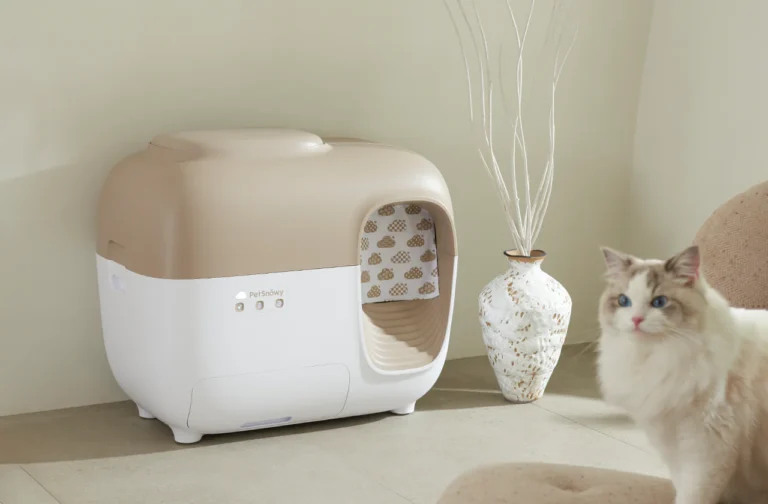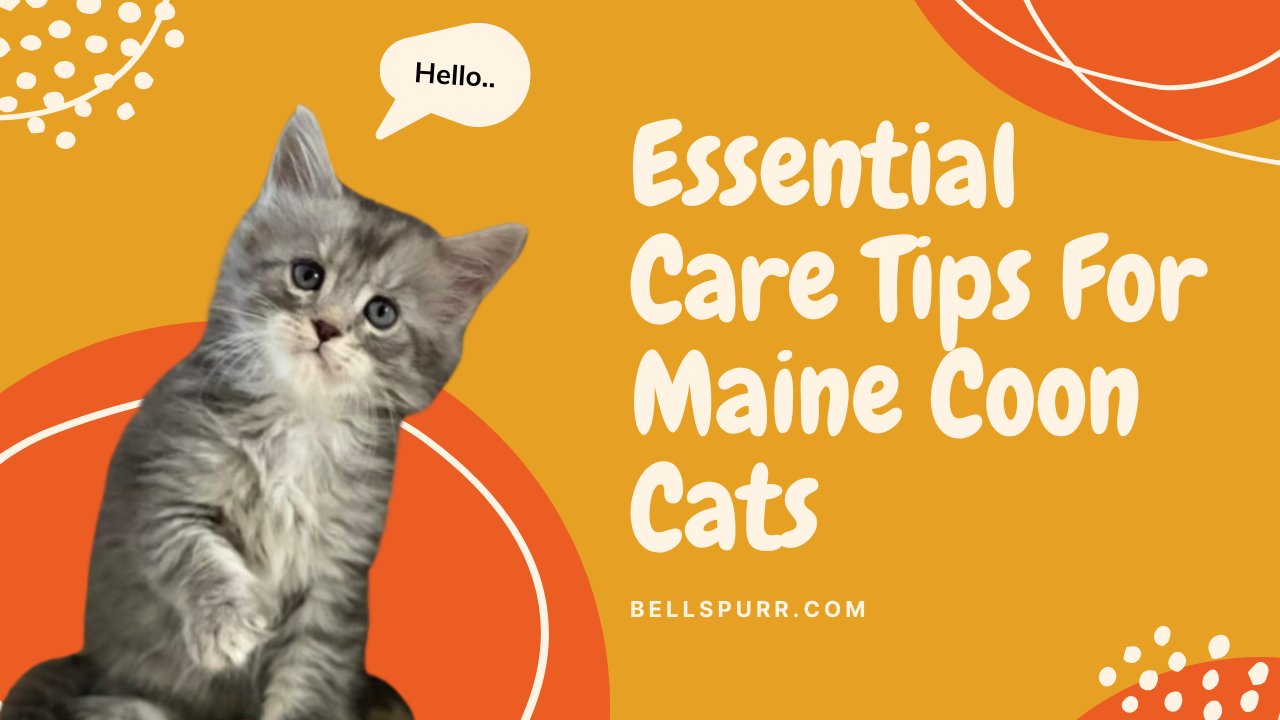Maintain a Healthy Weight
Maine Coon Cats are naturally large, but it’s important to ensure they maintain a healthy weight. Obesity can lead to a variety of health problems, including heart disease. Regular exercise and a balanced diet are essential. Consider interactive toys that encourage your Maine Coon to move and play.
Diet And Nutrition
These Large Cats Have Hearty Appetites, So Providing A Balanced Diet Is Crucial. Opt For High-Quality Cat Food Rich In Protein And Nutrients. Monitor Their Weight And Adjust Portions As Needed To Prevent Obesity, Which Can Lead To Health Issues.
Exercise And Enrichment
Maine Coon Cats are active and Enjoy Playtime And Mental Stimulation. You can keep them engaged by providing Toys, Climbing Trees, And other Interactive Activities. Engage them in their Daily Play Sessions to Help Maintain Their Physical Health And Prevent Boredom.

Provide Clean Litter Boxes
Keeping the litter box clean is crucial for your Maine Coon’s health. A clean litter area prevents urinary tract infections, which these cats are prone to. Opt for clumping litter as it makes cleaning easier and helps ensure your feline friend has a fresh space to do their business daily.
Litter Box Maintenance
Keep The Litter Box Clean And In A Quiet, Accessible Location. Maine Coon Cats are picky about their bathroom habits. A dirty litter box can cause stress or make them avoid it.
Regular Grooming
The Maine Coon’s thick, luxurious coat requires regular grooming to prevent matting and hairballs. Brush your cat at least twice a week to keep their fur in top condition and to reduce shedding. This also provides an opportunity for bonding and for checking for any skin issues or parasites.
Maine Coon ears are large, and they can get ear infections. Clean and check their ears often to prevent serious issues.
If you notice a problem, talk to your vet right away. Untreated infections can lead to middle ear infections and permanent damage. This is very important , please do not overlook.
Hydration is Key
Ensure your Maine Coon always has access to a fresh water bowl. Proper hydration is essential for preventing urinary tract infections and other health issues. Some cats prefer running water, so you might consider a water fountain to entice them to drink more.
Regular Veterinary Check-Ups
maine coon cats are known for their intelligence and playful nature, so providing them with plenty of toys and activities is essential. Consider investing in interactive toys that challenge their problem-solving skills, such as puzzle feeders or treat-dispensing balls.
Additionally, climbing structures like cat trees or shelves can satisfy their natural instinct to climb and explore. Maine Coons love to perch up high, so giving them a vantage point will keep them entertained and engaged.
Don’t forget to rotate their toys regularly to keep things fresh and exciting. You can set aside time each day for fun play sessions. Use feather wands or laser pointers to help your pet exercise and bond with you.

Socialization and Companionship
Maine Coon Cats are known for their friendly and sociable nature. They thrive on companionship, whether it’s with humans or other pets.
Make sure to spend quality time with your cat, engaging in gentle play and cuddling. If you have a busy schedule, consider adopting another pet to keep your Maine Coon company. Just ensure that any introductions are done gradually to help both animals adjust.
Social Interaction: These Social Cats Thrive On Human Interaction. Spend Quality Time With Your Maine Coon, Offering Affection And Attention. They are renowned excellent companions due to their Friendly Nature. Also, They Appreciate Being Part Of The Family.
Maine Coon Care and Grooming
Regular grooming is important for maintaining your Maine Coon’s beautiful coat. Their long fur can become tangled and matted if not cared for properly. Brush your cat at least once a week to remove loose hair and prevent hairballs. During shedding seasons, you may need to increase grooming frequency.
Additionally, check their ears, teeth, and nails regularly. Cleaning their ears and brushing their teeth can help prevent health issues down the line. If you are not sure how to groom your Maine Coon, ask your vet for advice. You can also think about booking professional grooming sessions.
By following these guidelines, you can ensure that your Maine Coon remains happy, healthy, and well-adjusted. With proper care, attention, and love, your cat will thrive and bring joy to your home for years.
Maine Coons are smart cats that do well in interesting environments. Provide plenty of toys, scratching posts, and climbing trees to keep their minds and bodies active. A content cat is a healthy cat, and mental stimulation is as important as physical exercise.
Grooming: Maine Coons Have A Thick, Luxurious Coat That Requires Regular Grooming To Prevent Matting And Tangling. Brush Your Cat At Least Twice A Week With A Quality Slicker Brush Or Comb. During Shedding Seasons, More Frequent Grooming May Be Necessary To Keep Their Fur In Top Condition.
Conclusion
Caring for a Maine Coon cat involves dedication and attention to detail. You can help your pet stay happy and healthy by focusing on their diet, grooming, hydration, and mental stimulation. This can also manage potential health problems.
Remember, regular veterinary care is your ally in maintaining your Maine Coon’s health. With the right care, your gentle giant will be a loving companion for many years to come.
For more tips on keeping your Maine Coon cat healthy and happy, stay tuned to our blog for expert advice and insights.
By Following The Above Maine coon Care Tips, You’ll Ensure Your Maine Coon Cat Remains Happy, Healthy, And Well-Adjusted. Their Unique Needs Require Dedication, But The Reward Is A Loving And Loyal Maine Coon kitten.

